Events
PAST EVENTS
Thursday March 3 from 3.30 p.m to 5.30 p.m
Guest speaker: Maude Mandart, young artist and graduate from the Quimper Beaux-Arts school. This session will focus on a film project led in collaboration with André Ferrer about “a wooden village that was entirely built by young people following a reintegration program between the early 1950s and 1969.” Her work builds on a selection of audio and film archival material that she will present during the course of the event.
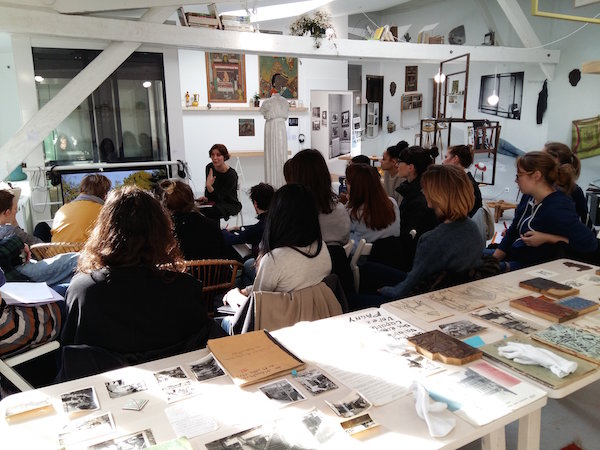
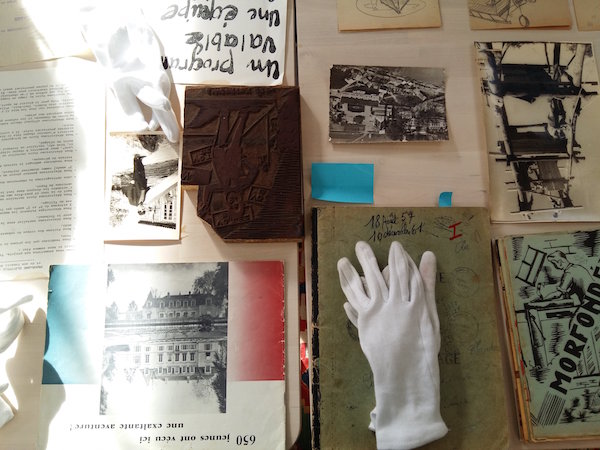
Maude Mandart, March 3 at Villa Vassilieff.
Thursday March 17 from 3.30 p.m to 5.30 p.m
Guest speaker: Véronique Goudinoux (contemporary art historian and theoretician, professor at the Lille University). She will address her recently published work: Oeuvrer à plusieurs, regroupement et collaborations entre artistes (Collective Endeavor: Gathering and collaboration between artists); Presses Universitaires du Septentrion, 2015.
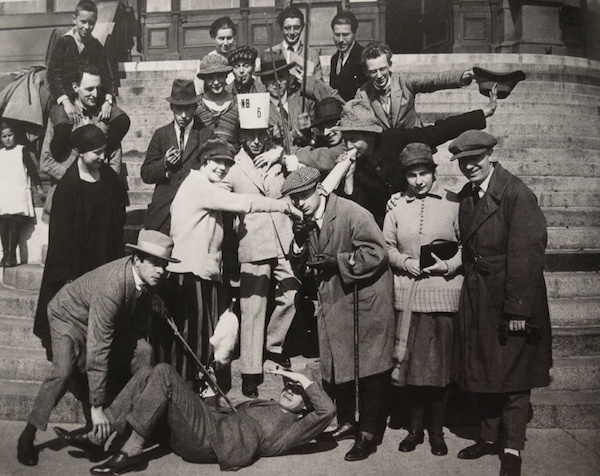
Image : Congrès des constructivistes et des dadaïstes à Weimar, septembre 1922. Photographe inconnu. © Berlin, Bauhaus-Archiv.
“The existence of a text presenting a comprehensive survey of artists’ gathering and collaboration from the Renaissance until the 20th century was missing. This book attempts to fill this knowledge gap as it invents a new object putting into perspectives artistic cooperative and collaborative practices from past and present time. It also focuses on the many places that permitted creation to take place in ‘social’ environments. Prior to artistic duos or collaborative projects as we know them today, artists were meeting and gathering in production and reproduction workshops, in academies, counter-academies, guilds, villages, and colonies, in artists’ societies, cooperatives, communities, clubs, schools, and movements. Further, it focuses on the gestures and activities defining some of the collaborative works (such as gifts, games, and parties), and unveils the extent to which some artists have conceived new working methods that echo recent calls for collaborative projects.
Group action – inside and outside the art field – questions the time we live in, the divide between small and big scales of society. Additionally, it suggests that a larger array of pathways can reframe relationships between individuals and groups: we may thus speak of cohesive, economical, cooperative, political, critical, and experimental models.
Being located at the intersection of art history and cultural history of anthropology, while being critical of a historical narrative privileging an autonomous becoming of art, the present volume opens up a reflection on contemporary collaborative practices and on their postulates that too often remain implicit.
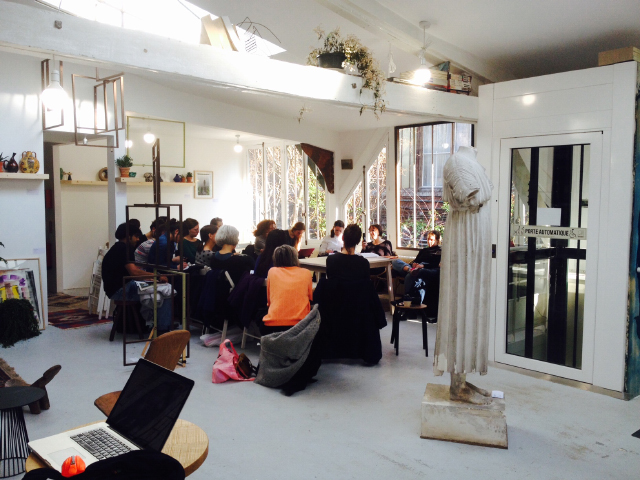
- View of the seminary "Modalities of co-creation practices", 2016. Picture : Villa Vassilieff.
Thursday March 31 from 3.30 p.m to 5.30 p.m
Guest : Pascal Nicolas-Le Strat
Cancelled due to social protests.
Thursday April 7 from 3.30 p.m to 5.30 p.m
Guest : Andrea Ancira (Pernod Ricard Fellow)
Métrobarbèsrochechou Art is the name of an experimental film collective constituted in 1977 by four artists: Gaël Badaud, Teo Hernández, Jakobois and Michel Nedjar. Through an intimate collaboration and common practice in Paris, each member managed to affirm and develop their own particular gaze and approach to cinema without compromising their complicity. Among other examples of contemporary collaborative artistic projects that some of the participants of the seminar will present we will examine the methodology of this collective as well as some extracts of their films in order to discuss the significance and contradictions of collaboration in contemporary art, in experimental practices and in other commoning practices of everyday life. This conversation will be part of the research project that Andrea Ancira is developing at Villa Vassilieff during her residency.
Here more info: http://www.villavassilieff.net/?Fellows-2016
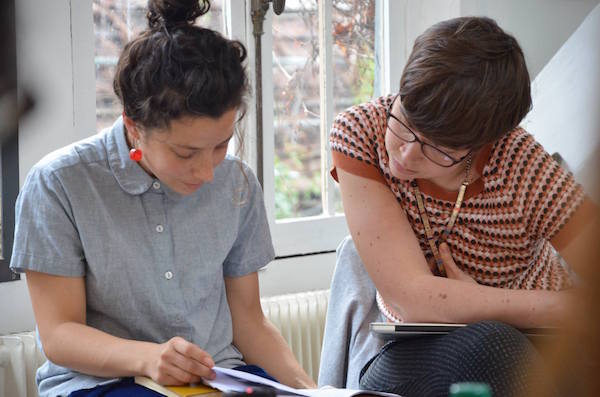
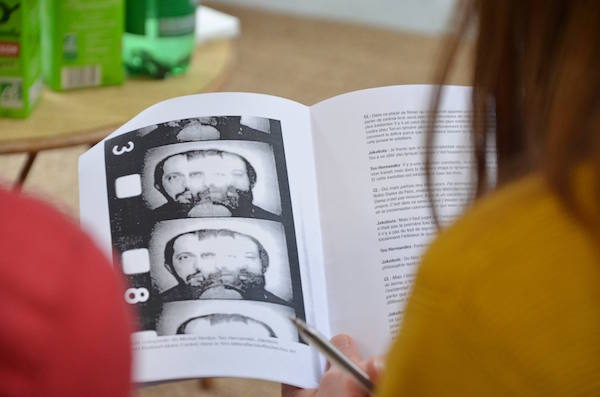
Views of the workshop with Andrea Ancira, Pernod Ricard Fellowship resident.
The seminar’s blog : http://www.arpla.fr/mu/creationscollectives/
Thursday October 27 from 3.30 p.m to 5.30 p.m
At Villa Vassilieff
MODALITIES OF CO-CREATION PRACTICES
With Géraldine Gourbe
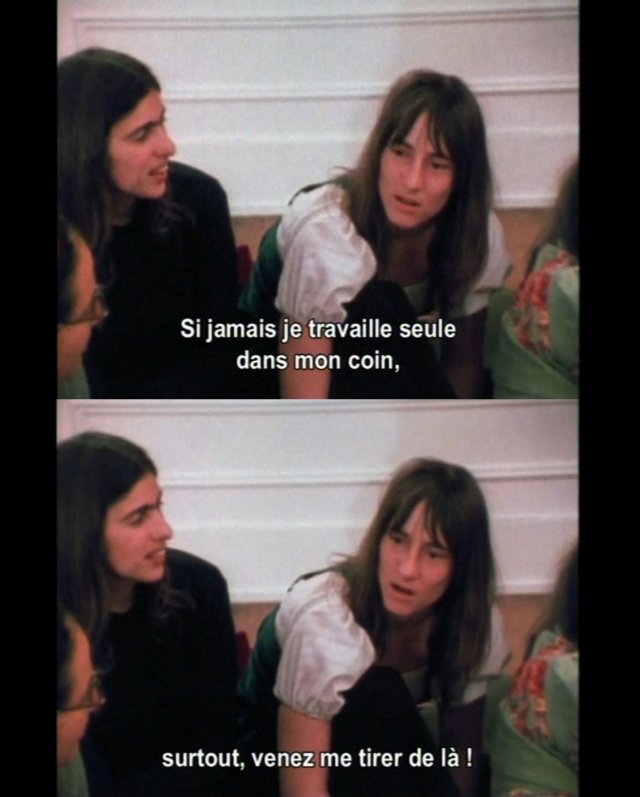
- Vidéogrammes du film Womanhouse de Johanna Demetrakas, 1972-1974, Le peuple qui manque éditions.
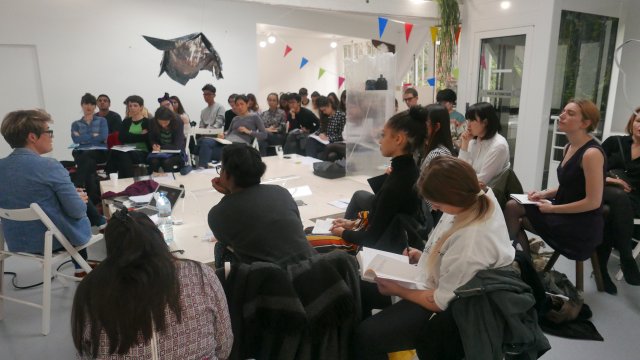
- View of the seminary "Modalities of co-creation practices", 2016. Picture : Villa Vassilieff.
Following the recent French publication of the book In the Canyon, Revise the Canon, Savoir utopique, pédagogie radicale et artist-run community art space en Californie du sud (Shelter Press/ESAAAA), coordinated by Géraldine Courbe, we invited her present her ongoing research. She will address themes of“consciousness rising”or “groups seized with awareness”as practiced within feminist movements, as well as its uses and consequences that can alternatively be defined as radical, pedagogical, or artistic.
The eco-feminist activist Starhawk described the practice as follow: “The group chooses a subject […]. We then seat in a circle. Each person speaks, one after another […]. We speak from our personal experience. When the circle has been completed, we openly discuss similarities and differences that exist between each of us. This discussion may be used to develop an analysis.” (Dreaming the Dark: Magic, Sex and Politics, Cambourakis publishing house 1982, 2015)
Géraldine Courbe is an independent researcher and philosopher. She earned a PhD in Aesthetics at the Paris-Nanterre/Paris Grand Ouest University, thanks to the support of the DMTS scholarship granted by the Ministry of Culture. Her PhD thesis focused on the political aesthetics of the Womanhouse and Woman’s Buildings, two projects that had been initiated by Judy Chicago in Los Angeles during the 1970s and 1980s.
She is now Professor in Aesthetics at the Ecole Superieure d’Art de l’Agglomeration d’Annecy, at Sciences Po, at the Marseilles Beaux-Arts school, and at the Metz University.
With the support of Institut Français, CNAP, and the cultural services of the French Embassy in New York, she coordinated In the Canyon, Revise the Canon: utopian knowledge, radical pedagogy and Artist-run Community Art Space in Southern California published by Shelter Press/ESAAA. She is currently writing a book on Allan Kaprow and on the North-West American coast, entitled Kaprow, Californien ou l’inservitude volontaire (FAMA Collection, directed by Xavier Douroux, Presse du réel).
She co-directed a program and exhibition about the legacy of writer Kathy Arker; K. Acker: The Office, presented at Triangle, Marseille, with Dorothée Dupuis.
Along with Florence Ostende, she benefited from a research and curatorial grant attributed to projects looking at the CNAP collections and the subject of counter-culture in France from 1947 until 1964. She was associate curator, with Florence Ostende, for the exhibition Ecole(s) de Nice, (MAMAC Nice) under the general supervision of Hélène Guenin in the context of the Centre Pompidou’s 40th anniversary, Summer 2017.
Thursday November 10
At Villa Vassilieff
MODALITIES OF CO-CREATION PRACTICES
With Camille Louis
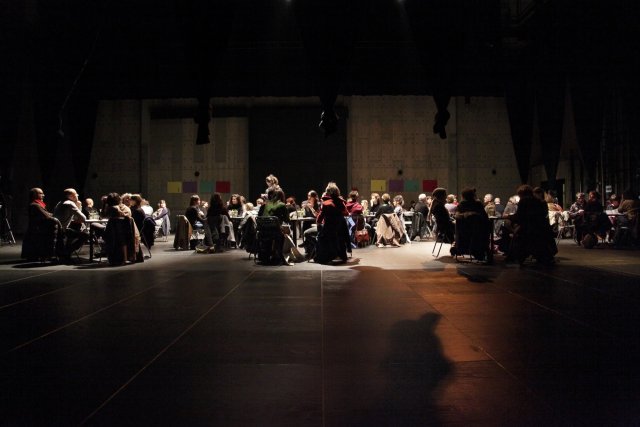
- Autour de la table, Nantes, Théâtre Universitaire, Jaanuary 2012. Picture : Mathieu Bouvier.
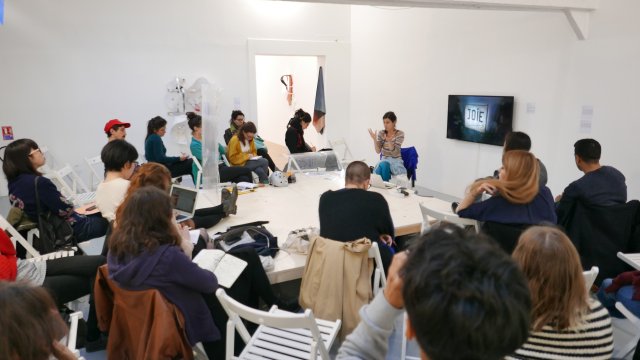
- View of the seminary "Modalities of co-creation practices", 2016. Picture : Villa Vassilieff.
Having developed a practice located at the intersection of several fields (philosophy, political activism, conference, performance, conservational apparatus, and sound installation) for various years, Camille Louis will present the manner in which her work (particularly the one that she leads with kom.post, a collective that she created with Laurie Bellanca) gives a peculiar attention to the collaborator-spectator.
Starting from the observation that a great number of so-called “participative” apparatuses often consist in attributing identified “parts” to functions and capacities, her works parts from this pre-given identity so as to recompose subjectivities and commons after distinguished artistic practices partaking in the “artistic experience.”
We call “experiences” what is formed through the encounter of “heterogeneous” elements (Spinoza, Deleuze), what takes shape along with articulations between who sees, who acts while seeing, and who sees while acting. Could experimental narrative building consist in implementing spaces at the intersection of artistic proposition and reception, wherein it is possible to consider differently what we call action? Originally “drama” means “action”, and “ergon” means “creation”. Can the drama-turgy, which invents itself at the time of a “crisis of action” and “ending of the politics”, find within experimental apparatuses the possibility to open anew, what –between and inside us- continues acting and inscribing political reconfiguration from the redistribution both of capacities and functions?
Raising such questions already opens a conversation, along with its meaning. Neither a dialogue nor a dispute or shared views, the conversation moves forward by unsettling (as in “conversare”). It turns around the repartition of bodies and spaces, so as to give a “corporeality” (name of one of the kom.post projects that will be mentioned) to what is being built in the “in-betweenness” of an exchange or experience.
We will talk about this in collaboration with speakers and students.
Born in 1984, Camille Louis is a playwright and co-initiator of the international collective kom.post (composed of researchers, artists and activists). She also holds a PhD in Philosophy, subject that she teaches at both Universities of Paris 7 and Paris 8. Her research is positioned at the crossing point of art and politics, and materializes through dramaturgic propositions of various types that always aim at modifying the perception conditions of what we call “action” (drama).
Camille Louis published numerous articles and essays - mostly in France – and presented many performative conferences in universities and international festivals across the world. Camille Louis’ artistic production has been displayed at the Avignon festival, at the Berlin TanzImAugust festival, at the Moscow Biennale, at the Athens MIR festival, at the Istanbul Idance, at the Buenos Aires International festival, and, in 2017, at the Bogota Experimenta Sur festival.
For the 2016-2017 season, she is Associate Playwright at the Maison du spectacle vivant, La Bellone in Bruxelles. She lives and works between Athens, Brussels, and Colombia.
Thursday December 1st
At la Villa Vassilieff
MODALITIES OF CO-CREATION PRACTICES
With Marie Fraser
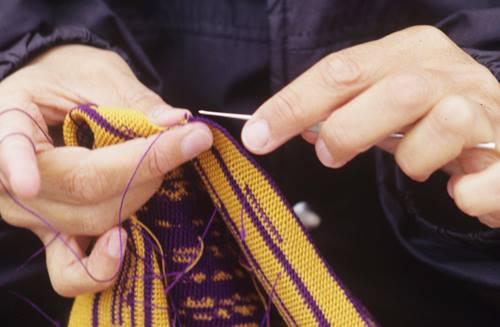
- Devora Neumark, Présence, 1997, Photo: Mario Belisle.
Five fundamental questions on collaboration and participation in the art field.
Through a critical perspective aiming at defining collaborative and participative artistic practices, we will touch upon five fundamental points:
First; conviviality and consensus as opposed to antagonism and conflict; secondly the lack of visibility inherent to some artworks condemned to disappearance by reason either of their dematerialization or due to their “extradisciplinarity” that may induce their removal from the art world; next the social and political efficiency of works elaborated on gestures blending in the everyday life until they fade away without a trace; then occupation and resistance against an increasingly privatized, spectacularized and controlled public space; and finally, the collaboration practices’ inherent risks and failures, their unpredictability and the negotiation process that can be extended to an important period of time.
Marie Fraser is professor of contemporary art and museology at the University of Québec, Montréal, since 2007. She was head curator of the Musée d’Art Contemporain de Montréal, between 2010 and 2013, and curated the BGL collective`s exhibition at the Canadian Pavilion for the 56th Venice Biennale in 2015. Since 1997, she has been conducting research regarding relational practices and artistic interventions in the public sphere.
Several articles, exhibition catalogues, symposiums, conferences, MA and PhD theses supervisions and exhibitions have contributed to its elaboration: Sur l’expérience de la ville (On the city experience) 1997; Gestes d’Artistes (Artists’gestures), 2001; in collaboration with Artists’ Space, New York and La Demeure (The Mansion), 2002.
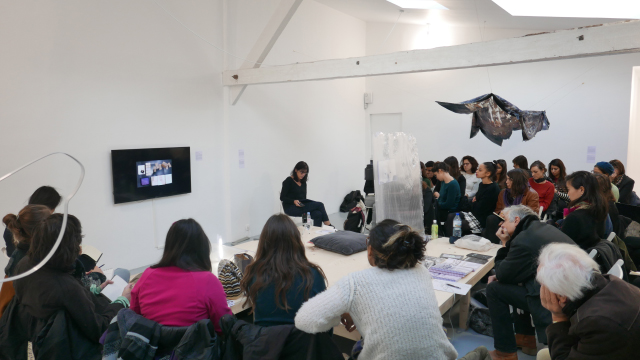
- View of the seminary "Modalities of co-creation practices", 2016. Picture: Villa Vassilieff
Thursday December 8
At Villa Vassilieff
MODALITIES OF CO-CREATION PRACTICES
With Zheng Bo
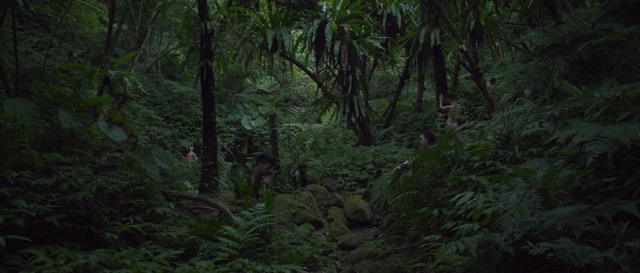
- Zheng Bo, Pteridophilia (video screenshot), 2016.
Title: Plants as Political Allies
Zheng Bo is a Chinese artist, currently in residency at Villa Vassilieff with the Pernod Ricard Fellowship. His project investigates the linkage between political parties as a persistent political form despite our contempt, and weeds as an irrepressible ecological force despite our discomfort. By asking the seemingly illogical question – what roles did weeds play in the establishment of the “Chinese Young Communist Party” in Paris by Chinese students in the 1920s – Zheng Bo intends to complicate the canonical histories of the Chinese Communist Party and international communism, and push for a more historical understanding of the roots of contemporary ecological crisis in China, and globally.
In the second phase of his project, in conversation with sociologists, political scientists, and botanists in Paris, Zheng Bo contniues to fantasize the post-human political party named "Weed Party". How would this party’s ideological, organizational, and emotional shape differ from that of previous communist parties? This project builds on his previous and current practice – Weed Party: Shanghai (2014-15, focusing on the botanical footprints of the Chinese Communist Party in Shanghai) and Weed Party: Taipei (current, focusing on the ecological impact of the Nationalist Party’s retreat from Mainland China to Taiwan in 1949). In Paris, it notably developed through the first workshop in June, and will continue with a second workshop in collaboration with Ecole du Breuil in December.
The aim of this project is to rethink internationalism and expand the notion of an international alliance of the working class to incorporate other working beings. For the seminar « Héritages et modalités des pratiques de co-création », Zheng Bo proposes to focus on the idea of equality: how can we treat plants as equal partners? How can we co-create politically with plants?
Each student is requested to bring a living plant for the seminar, and watch this documentary in advance of December 8.
The seminar will exceptionally take place in the Pernod Ricard studio at Villa Vassilieff. This session is for Paris 8 students only.
Zheng Bo (b. 1974 Beijing) has been making socially engaged art since 2003. He has worked with a wide range of communities, including the Queer Cultural Center in Beijing and Filipino domestic helpers in Hong Kong. His participatory projects have been exhibited in numerous public institutions in China and abroad. He received a Prize of Excellence from Hong Kong Museum of Art in 2005, and a Juror’s Prize from Singapore Art Museum in 2008. Since 2013, he has been working with weeds as a way to think about ecology and politics in Greater China. He received a PhD in Visual & Cultural Studies from the University of Rochester, taught at China Academy of Art from 2010 to 2013, and currently teaches at the School of Creative Media, City University of Hong Kong.
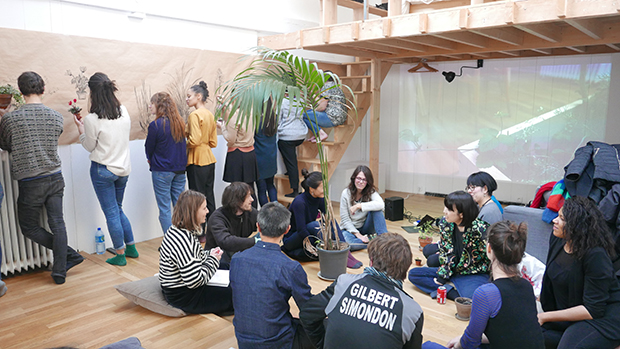
- Seminary "Modalities of co-creation practices" with students from Paris 8 received by Zheng Bo in the Pernod Ricard studio, 2016.
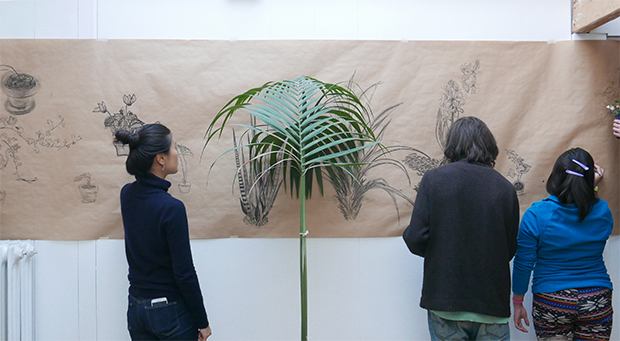
- Seminary "Modalities of co-creation practices" with students from Paris 8 received by Zheng Bo in the Pernod Ricard studio, 2016.
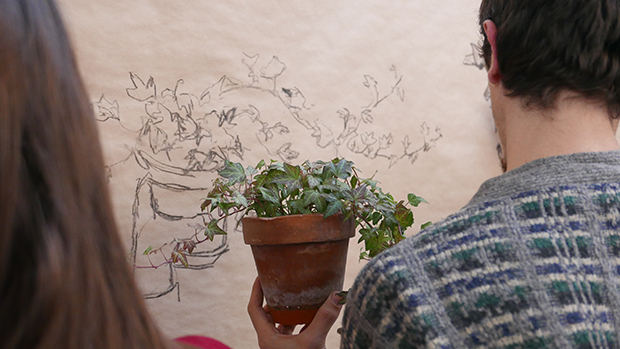
- Seminary "Modalities of co-creation practices" with students from Paris 8 received by Zheng Bo in the Pernod Ricard studio, 2016.
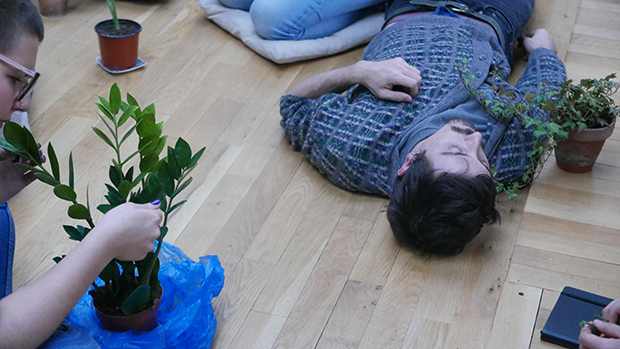
- Seminary "Modalities of co-creation practices" with students from Paris 8 received by Zheng Bo in the Pernod Ricard studio, 2016.
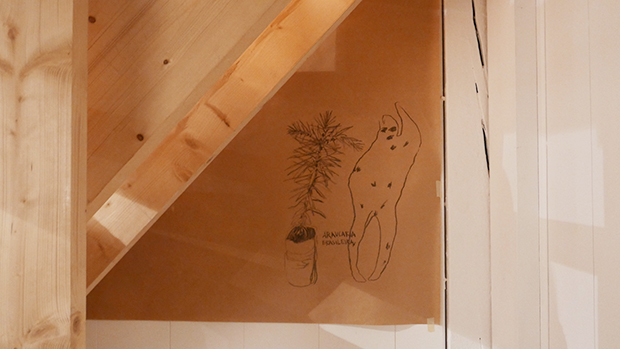
- Seminary "Modalities of co-creation practices" with students from Paris 8 received by Zheng Bo in the Pernod Ricard studio, 2016.
Partager